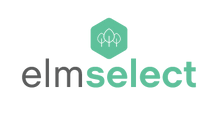Understanding Private Loans for Education
What Are Private Loans? Private loans are funding options available to students from external lenders, designed to help bridge the gap between the total cost of education and traditional funding sources such as federal student loans, parent loans, grants, and scholarships. Since private loans can vary widely in terms, it's essential for borrowers to conduct thorough research to determine which options best suit their individual financial situations.
Where to Start Your Research A valuable resource for exploring private loans is ELM SELECT, a comprehensive database that provides a variety of lenders and their loan products. This platform can help you compare options effectively:
*login not required to view loan options
Borrower Information
Both students and parents can serve as borrowers. However, if a student is the primary borrower, they will typically require a creditworthy co-signer. Here are some key considerations regarding repayment and terms:
- Repayment Options: Depending on the lender, borrowers may have several repayment choices, including:
- Immediate repayment while in school.
- Interest-only payments during school.
- Deferred payments until after graduation (interest will accrue during the deferment period).
- Interest Rates and Fees: Interest rates can fluctuate significantly among lenders, and borrowers should also be aware of any associated fees.
- Eligibility for Specific Populations: Private loans may be accessible to:
- International students (most require a U.S. citizen as a co-signer).
- Part-time students and non-matriculated students.
Private loans are specifically intended for educational expenses and cannot exceed the total cost of attendance minus other financial aid received.
Binghamton University’s Approach
Due to the ever-evolving lending market, Binghamton University does not maintain a preferred lender list. We encourage students to diligently research and compare various loan products to find the best fit for their needs.
Key Considerations When Borrowing a Private Loan
- Exhaust Federal Aid First: Federal student loans often come with fixed interest rates, lower origination fees,
and greater flexibility in repayment, deferment, forbearance, and forgiveness. Use
private loans only after fully exploring federal options.
- Federal Parent PLUS Loan: As of July 1, 2025, this loan has a fixed interest rate of 8.94% with an origination fee of 4.228%. It can be deferred until the student graduates and has a less stringent credit check than private loans. This may be a preferable option for parents considering financing their child’s education.
- Federal Graduate PLUS Loan: This loan is available to graduate students once they exhaust their unsubsidized loans. It has a fixed interest rate of 8.94% and an origination fee of 4.228%, making it a potentially better choice than private loans for many borrowers.
- Interest Rate Structures: Most lenders utilize tiered interest rates based on the credit scores of both the borrower and co-signer. Note that fewer than 25% of applicants typically qualify for the lowest advertised rates.
- Loan Certification: Private loans must be certified by the school, with funds disbursed directly to the institution to cover account balances. The total loan amount cannot exceed the difference between Binghamton’s cost of attendance and the accepted financial aid. Any surplus funds will be refunded to the student.
- Application Timeline: It is advisable to apply for private loans at least two to three months before the start of the semester. Students should proactively address any issues with the lender during the application process.
- Consolidation Considerations:
- Private loans cannot be included in future federal loan consolidations.
- Some lenders offer private loan consolidation for consolidating multiple private loans.
- While consolidation may extend repayment terms and reduce monthly payments, it can increase the overall financial obligation.
- Prepaying principal is often permitted without penalties, helping reduce the total cost of the loan.
- Multiple Applications Warning: Applying for multiple loans to secure the best rate can negatively impact credit scores, as each application may reduce the score by approximately five points.
Researching Private Loans
Before securing a private loan, it’s beneficial to use the ELM SELECT platform to:
- Access a Comprehensive List: Review various lenders and their rates, filtered by program or student status (Undergraduate, Graduate, International, DACA).
- Utilize Comparison Tools: Take advantage of tools to compare loans effectively.
- Enhance Financial Literacy: Use available resources to improve your understanding of loan terms and repayment options.
Questions to Ask Potential Lenders
When contacting a lender, consider asking the following:
- How long have you been in the private loan lending business?
- Do you service your own loans, or is there a third-party servicer? If so, who is it?
- What percentage of applicants qualifies for the most favorable interest and fee tiers?
- How long can the loan be deferred before repayment begins?
- Are there any repayment incentives, and are they guaranteed for the duration of the loan?
By following these guidelines and asking the right questions, you can make an informed
decision about private loans and ensure that you choose the best financial path for
your education. If you have any questions or need further assistance, don’t hesitate
to reach out!
